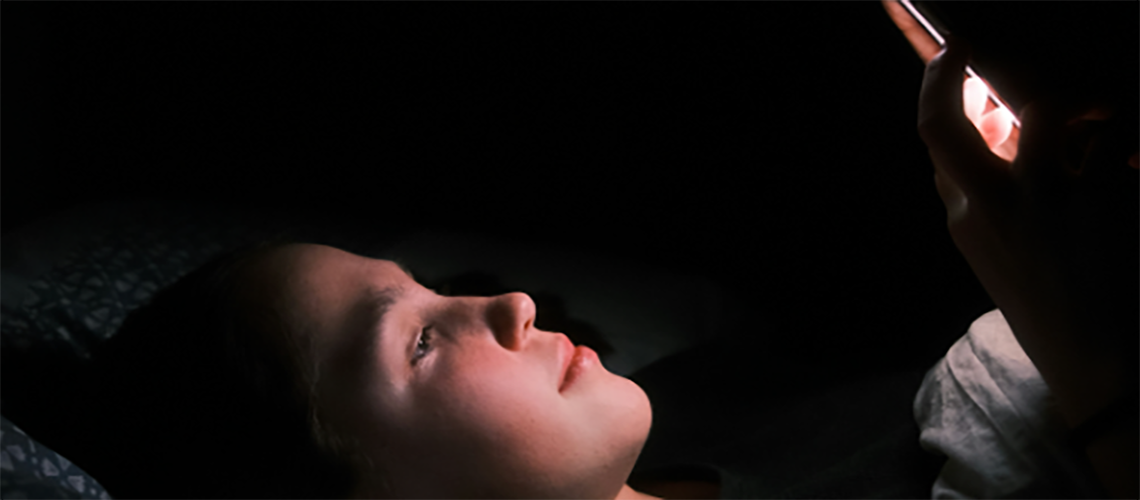Follow us on Google News (click on ☆)
What is the impact of screens on teenagers' sleep? A study by the University of Geneva (UNIGE), conducted in 2021 in secondary schools in collaboration with the Department of Public Education, Training and Youth (DIP) of the Canton of Geneva, shows that strict parental rules on smartphone use in the evening significantly increase sleep duration and improve academic results. This work can be found in Discover Public Health.

According to a study by Unisanté in Lausanne, in 2020 in Switzerland, 14-year-old children were twelve times more likely than in 2012 to spend more than four hours a day in front of a screen.
© Kajetan Sumila - Unsplash
Sleep plays a crucial role in cognitive and emotional functions. It contributes to memory consolidation, alertness and emotional stability. Quality sleep also prevents the early onset of psychiatric disorders such as anxiety or depression. Yet teenagers are sleeping less and less, often well below the 8 to 10 hours of sleep recommended for their age by the American Academy of Sleep Medicine (AASM), the global reference in this field.
On average, the sleep gain reaches 40 minutes per night.
According to a study by Unisanté (Lausanne), in 2020 in Switzerland, 14-year-old children were twelve times more likely than in 2012 to spend more than four hours a day in front of a screen. This excessive exposure has negative consequences on sleep duration and quality. Screens delay bedtime by taking up precious time, but also by stimulating attention and emotions, delaying sleep onset. While the presence of screens in the bedroom is recognized as an aggravating factor, few studies had until now explored the effects of specific parental rules on sleep.
Strict rules are the most effective
The UNIGE team analyzed responses from 329 students aged 13 to 15. They had to complete a questionnaire about their sleep habits and the rules set by their parents regarding screen use. The results show that students subject to the strictest rules - no phone in the bedroom and no use in the evening - sleep significantly longer. On average, the sleep gain reaches 40 minutes per night.
"This is considerable, knowing that this age group needs about 9 hours of sleep and often only gets 7 to 8. Each week, these 40 minutes represent almost an additional night of sleep," emphasizes Virginie Sterpenich, a researcher in the Department of Fundamental Neurosciences at the UNIGE Faculty of Medicine, who led the study. Other types of restrictions, such as limiting daily screen time or setting a bedtime, show no significant effect on sleep duration.
Multiple benefits
The study doesn't stop at sleep duration. It also shows that young people who sleep more have better academic results. "Parents therefore have a key role to play. Their involvement directly influences their children's health and success. They should be encouraged in this direction. This framework must be established before the age of 15, beyond which bad habits are more difficult to correct," specifies Kevin Mammeri, a PhD student in the Department of Fundamental Neurosciences and first author of the study.
The next step, already underway in schools, is to offer awareness workshops and concrete tools to students whose sleep is impaired. "Many still keep their phone in their bed without a clear distinction between the place where they sleep and where they browse social media," notes Virginie Sterpenich. "Changing this habit would be a good step toward healthy sleep."